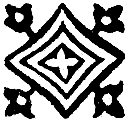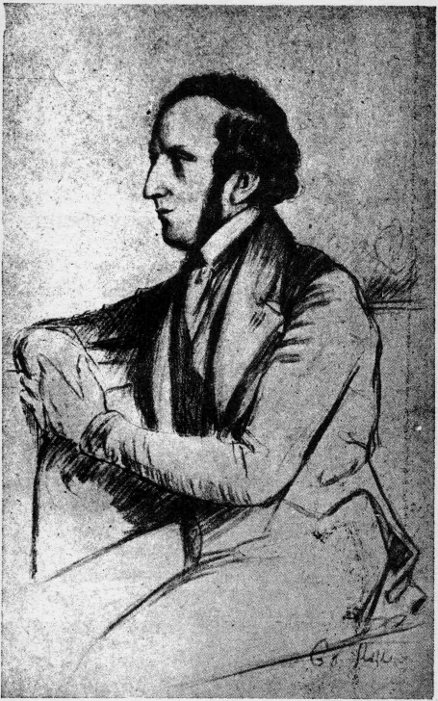
HERBERT F. PEYSER
MENDELSSOHN
and
Certain Masterworks

Written for and dedicated to
the
RADIO MEMBERS
of
THE PHILHARMONIC-SYMPHONY SOCIETY
of NEW YORK
Copyright 1947 by
THE PHILHARMONIC-SYMPHONY SOCIETY
of NEW YORK
113 West 57th Street
New York 19, N. Y.

Mendelssohn.
Sketch by Carl Mueller, 1842.
FOREWORD
In the compass of the present pamphlet it is impossibleto give more than a cursory survey of Mendelssohn’shappy but extraordinarily crowded life. He wasonly slightly less prolific a composer than such mastersas Bach, Mozart or Schubert, even if he did not reachthe altitude of their supreme heights. But irrespective ofthe quality of much of his output, the sheer mass of it isastounding, the more so when we consider the extent of histravels and the unceasing continuity of his professionaland social activities, which immensely exceeded anythingof the kind in the career of Schubert or Bach. Inthese few pages it has not been feasible to mentionmore than a handful of his more familiar compositionswhich happen, incidentally, to rank among his best. Thereader will find here neither a detailed record of Mendelssohn’sendless comings and goings nor any originalityof approach or appraisal in the necessarily casual commentson a few works. If the booklet encourages him tolisten with perhaps a fresh interest to certain long familiarscores, now that a full century has passed since thecomposer’s death, its object will have been achieved.
H. F. P.
Mendelssohn and Certain Masterworks
By
HERBERT F. PEYSER
In 1729—the year of Bach’s “St. Matthew Passion”—ahumble Jew of Dessau on the Elbe, Mendel by name,became the father of a boy whom he called Moses.Mendel was something of a scholar as the times went,but desperately poor. He kept body and soul together byrunning a small Hebrew day-school and transcribing thePentateuch. His infant son might know the pangs ofhunger but he should have the boon of a sound education.The training was begun almost before the childcould walk. Mendel would rout him out of bed at threeor four on winter mornings, fortify him with a cup oftea and carry him, wrapped in a shawl, to a publicseminary where he was put in charge of the learnedRabbi David Frankel.
Moses showed himself an extraordinarily gifted pupil.For one thing, he was consumed by a restless spirit ofinquiry. He set about making an exhaustive study of theScriptures, read voraciously, acquired languages with uncannyfacility and, before he was ten, composed Hebrewverses. Nothing influenced him so deeply as Maimonides’“The Guide of the Perplexed”. But the intensity of hisintellectual occupation was such that he fell prey to anervous malady which deformed his spine for life. Hebore his ailment with the patience of Job and was neverheard to complain. “If Maimonides weakened my body”,he had a habit of saying, “has he not made ample atonementby invigorating my soul with his su